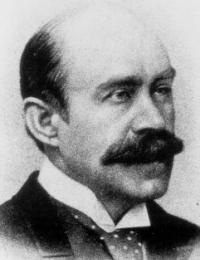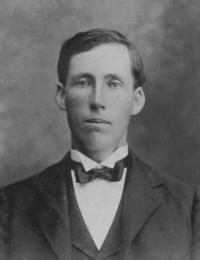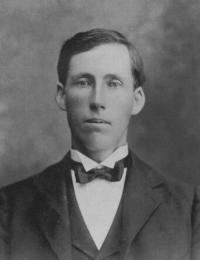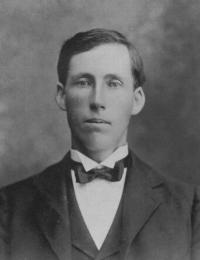No account of the Renaissance can be complete without some notice of the attempt made by certain Italian scholars of the fifteenth century to reconcile Christianity with the religion of ancient Greece. To reconcile forms of sentiment which at first sight seem incompatible, to adjust the various products of the human mind to one another in one many-sided type of intellectual culture, to give humanity, for heart and imagination to feed upon, as much as it could possibly receive, belonged to the generous instincts of that age.
English
Excerpt from C. Wordsworth: ATTICA [IMPORTANCE OF THE GREEK LANGUAGE FOR THE DISSEMINATION OF CHRISTIANITY]
Ælian recounts that one day Socrates took Alcibiades to a building in the city of Athens, in which maps of different countries were collected. Among them was a chart of the habitable world, as it was then known to the geographers of Greece. The philosopher directed the attention of his young friend to this chart with the intention of reducing the pride in which the latter appeared to indulge due to his vast territorial possessions on the Athenian territory. He asked him to indicate the position of Attica on the map and Alcibiades did so. Now show me where your own estate is located on the map, said Socrates. “It is not possible” answered the other; “you cannot expect my domains to appear there, where even Attica itself occupies so small an area.”
G. Finlay : HISTORY OF THE BYZANTINE EMPIRE (part 14)
Nicephorus held the office of grand logothetes, or treasurer, when he dethroned Irene. He was born at Seleucia, in Pisidia, of a family which claimed descent from the Arabian kings. His ancestors Djaballah, the Christian monarch of Ghassan in the time of Heraclius, abjured the allegiance of the Roman empire, and embraced the Mohammedan religion. He carried among the stern and independent Moslems the monarchical pride and arrogance of a vassal court. As he was performing the religious rites of the pilgrimage in the mosque at Mecca, an Arab accidentally trod on his cloak; Djaballah, enraged that a king should be treated with so little respect, struck the careless Arab in the face, and knocked out some of his teeth.
Mauro Giachetti: J. S. BLACKIE, LAYS AND LEGENDS OF GREECE, "BELLEROPHON", 1st Part
The sun shines bright on Ephyre’s height, And right and left, with billowy might, Poseidon rules the sea; But not the Sun that rules above, Nor strong Poseidon, nor great Jove, Can look with looks of favouring love, Bellerophon, on thee.
George Finlay : HISTORY OF THE BYZANTINE EMPIRE FROM DCCXVI TO MLVII (part 13)
In the year 782, Haroun was sent by his father, the Caliph Mahdy, to invade the empire, at the head of one hundred thousand men, attended by Rabia and Jahja the Barmecid. The object of the Mohammedan prince was, however, rather directed to pillaging the country, and carrying off prisoners to supply the slave-markets of his father's dominions, than to effect permanent conquests. The absence of a considerable part of the Byzantine army, which was engaged in Sicily suppressing the rebellion of Helpidios, enabled Haroun to march through all Asia Minor to the shores of the Bosphorus and from the hill above Scutari to gaze on Constantinople, which must have presented a more imposing aspect than Bagdad.
Christopher Wordsworth: GREECE (part 1)
The Emperor Hadrian owned a splendid villa at Tivoli, of which the remains are still extant. In it he attempted to perpetuate the Reminiscences he had of Greece. He there constructed edifices to which he gave the names of Poecile and Lyceum; in their vicinity he planted the Grove of an Academy, and he dug the bed of an ideal Peneus through the pleasing Dale of an imitative Tempe. The Traveller in Greece recreates in his own mind such a villa as this. He provides it with the beautiful scenes that he once saw in that country; he revitalizes it with the transparent waters and fresh shades of a Tempe; he adorns it with the graceful porticos of a Poecile, a Lyceum and an Academy.
John Stuard Blackie: 1880 LAYS AND LEGENDS
No character of primeval Greek tradition has been a greater favourite with modern poets than the hero of the well-known play of Aeschylus. The common conception of him, however, made fashionable by Shelley and Byron, as the representative of freedom in contest with despotism, is quite modern; and Goethe is nearer the depth of the old myth, when, in his beautiful lyric, he represents the Titan.
George Finlay : HISTORY OF THE BYZANTINE EMPIRE FROM DCCXVI TO MLVII (part 12)
The habit of building monasteries as a place of retreat, from motives of piety, was also adopted by some as a mode of securing a portion of their wealth from confiscation, in case of their condemnation for political crimes, peculiar privileges being reserved in the monasteries so founded for members of the founder’s family. At this time Plato, abbot of the monastery of Sakkoudion, on Mount Olympus in Bithynia, and his nephew Theodore, who was a relation of the new Empress Theodota, were the leaders of a powerful party of monks possessing great influence in the church. Theodore (who is known by the name Studita, from having been afterwards appointed abbot of the celebrated monastery of Studion) had founded a monastery on his own property, in which he assembled his father, two brothers, and a young sister, and, emancipating all his household and agricultural slaves, established them as lay brethren on the farms.
Oscar Wilde: THE RISE OF HISTORICAL CRITICISM: (part 19)
Still, though we miss in the historian those higher and more practical qualities which the philosopher of the Academe alone of all men possessed, we must nit blind ourselves to the merits of that great rationalist who seems to have anticipated the very latest words of modern science. Nor yet is he to be regarded merely in the narrow light in which he is estimated by most modern critics, as the explicit champion of rationalism and nothing more. For he is connected with another idea, the course of which is as the course of that great river of his native Arcadia which, springing from some arid and sunbleached rock, gathers strength and beauty as it flows till it reaches the asphodel meadows of Olympia and the light and laughter of Ionian waters.
Walter Pater: WINCKELMANN - ET IN ARCADIA EGO (Part IV)
To regard all things and particles of things as inconstant modes or fashions has more and more become the tendency of modern thought. Let us begin with that which is without – our physical life. Fix upon it in one of its more exquisite intervals, the moment, for instance, of delicious recoil from the flood of water in summer heat. What is the whole physical life in that moment but a combination of natural elements to which science gives their names? But those elements, phosphorus and lime and delicate fibres, are present not in the human body alone: we detect them in places most remote from it. Our physical life is a perpetual motion of them – the passage of the blood, the waste and repairing of the lenses of the eye, the modification of the tissues of the brain under every ray of light and sound – processes which science reduces to simpler and more elementary forces.








